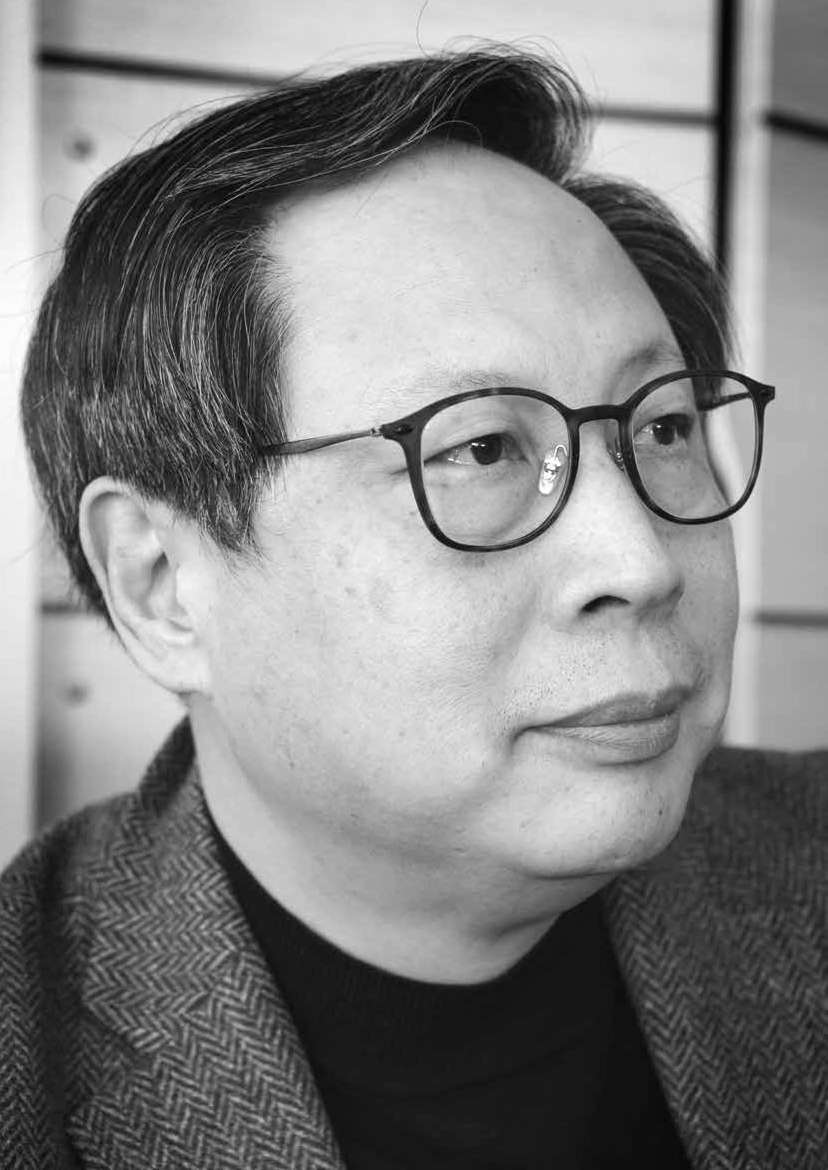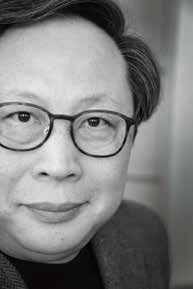Issue:


As with many Tokyo-based foreign correspondents, it was a strong interest in Japan that led Shiuan Sheng Fang and his journalism career to this country. Born in Taipei, Shiuan attended Taiwan’s World Journalism University, a leading school that has produced many of Taiwan’s best scribes. He took a landmark step when instead of taking the normal path of getting a job in Taipei – Shiuan applied to Sophia University in Tokyo. “I wanted to study Japanese journalism because I had a strong interest in the media,” he says. “My friends in Taiwan were going to the U.S. for further study but I decided to stay in Asia and learn something different.”
At Sophia, Shiuan gained a deep insight into the Japanese media, an industry he feels is “unique.” He refers to the press club system for gathering news, some thing that he finds starkly different to other countries. He also points to the marketing strategy where the newspaper companies, representing some of the world’s most lucrative circulations, maintain these figures mostly because of their links to professional baseball teams.
Shiuan also views the way Japanese journalists are treated as salarymen faithful servants to a company where loyalty and seniority are deeply entrenched in the management systems as unique.
After completing his four-year degree in journalism, Shiuan returned to Taipei to join China TV, the country’s largest broadcaster. While learning the ropes of journalism in the field, Shiuan who had an edge over his colleagues because of his Japanese knowledge was soon recognized by his bosses as the best reporter on East Asia. In 1990 he achieved his life long ambition to be sent to Japan as Tokyo correspondent. The big topics he covered were the April 1994 China Airlines crash in Nagoya and Japan’s tense East Asia relations.
“The work was quite grueling because of the investigative work I had to do,” recalls Shiuan. “When I look back now I realize I was covering a different Japan to what I see now.” At first, his coverage focused on Japan as a much admired economic leader in Asia. Later, however, his reporting began to focus on how the country was struggling with the long recession and the problems that marked the end of Japan’s much admired postwar growth. Telling this story to readers in Taiwan who had so much respect for Japan required a sensitive analysis, says Shiuan. In 1995 he returned to a desk job at his company’s Taipei headquarters.
IN 2001 HE ARRIVED here once again as Tokyo correspondent, and still remains. The biggest story filed after his return was the triple disaster of March 2011. He travelled to Fukushima two days after the disaster scrambling for news in the chaos, realizing how illprepared he was to cover such a major disaster. As the radiation threat spread, he was ordered to return to Tokyo by his company and stayed in the city while collecting information. “Getting real data and quotes was a problem for foreign reporters in Japan during that time,” he says. He emphasized that the FCCJ was a beacon for him at that time.
“When I look back now I realize I was covering a different Japan to what I see now.”
Still, for Shiuan, the most important angle in his stories was the huge donations that had begun pouring in from his homeland. In fact, tiny Taiwan, along with the U.S., topped the list of foreign contributions to Japan pouring almost US$3 billion in humanitarian aid through the Red Cross and other organizations.
He was determined to give the generous Taiwanese public as much information as possible about how their money was spent in the disaster areas, and a regular theme in Shiuan’s stories was the deep appreciation expressed by the disaster survivors who had received the aid. “Their sincerity and smiles when I interviewed them touched me deeply,” he explains. He continued to find and file positive stories, contrasting with the tragedy and despair that surrounded him. His reports from Iwate, Fukushima and Sendai where he spoke to Taiwanese doctors, volunteers and organizations, conveyed the struggle for survival that he found all around him. “Taiwanese people, who also face natural disasters in their country, are spontaneously willing to help others. Reaching out to each other during a tragedy is a natural social trait. Yet even I was surprised at how much they were willing to give to help,” says Shiuan.
The story he told his audience in Taiwan during the first year after the disaster was the importance of foreign aid to resilience and recovery. “In my reporting I learned an important lesson which I made sure was expressed in my stories people were coming together in Japan and were working together to help the survivors and rebuild the devastation. I felt the world was one,” he says.
Now Shiuan is collecting survivor viewpoints on the recovery progress and efforts to overcome the drastic changes in their lives, especially in areas close to the Fukushima nuclear plant. As a journalist, his stories will have to reach an audience saturated with glossy popular themes. Taiwanese youth love Japanese ramen, pop stars and fashion. Shiuan competes against this trend. “I want to tell in-depth stories on the Tohoku disaster on television that make people think for themselves. This is the mission of true journalism,” he said.
Suvendrini Kakuchi is a correspondent for the UK-based University World News, with a focus on higher education issues. She is president of the FCCJ.

